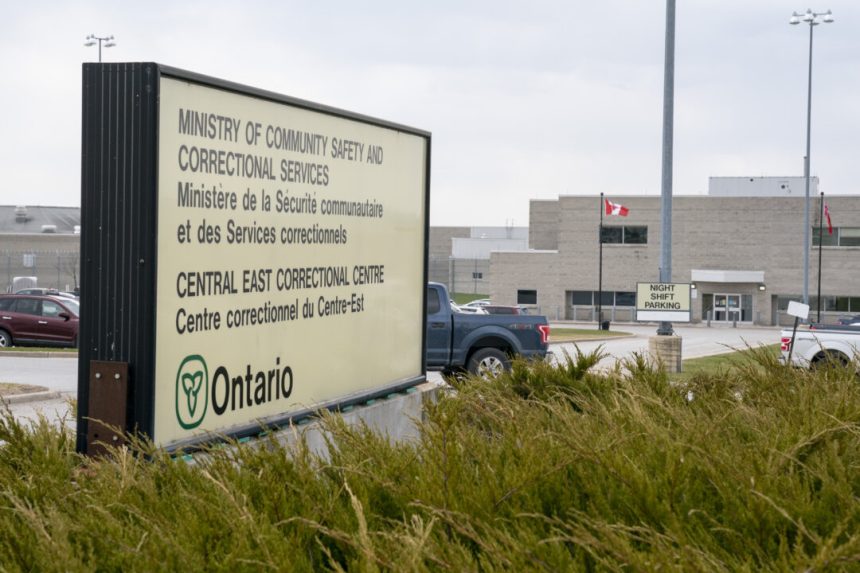
The Central East Correctional Centre in Lindsay, Ont., in a file photo. The Canadian Press/Frank Gunn
Ontario’s Ford government is pressing the federal government to bring back tougher bail and sentencing provisions as it prepares new justice reforms.
Ontario’s solicitor general and attorney general sent a joint letter Sept. 22 asking the federal government to deliver substantive reforms to Canada’s federal bail and sentencing laws.
“We are writing to convey Ontarians’ expectation for comprehensive and wholesale solutions, rather than tinkering around the edges,” Michael Kerzner and Doug Downey stated. “It is critical that federal legislation meets the standard Canadians expect: cracking down on crime and keeping violent, repeat offenders behind bars where they belong.”
Among Ontario’s asks are getting rid of bail eligibility for offences such as murder, intimate partner violence, and certain firearms charges, as well as reinstating mandatory minimum penalties for “serious” crimes. The province also wants to introduce a “three-strikes” rule that would automatically deny bail for repeat offenders.
The proposal would also designate more crimes, including violent home invasions, carjackings, and human trafficking, as reverse onus offences when it comes to bail. In such cases, the burden shifts from the prosecution showing why an accused should stay in custody to the accused showing why they should be released.
The Sept. 22 letter was sent to federal Justice Minister Sean Fraser and Public Safety Minister Gary Anandasangaree, echoing Premier Doug Ford’s repeated demands to limit bail availability for those awaiting trial. Fraser said last week that the federal government plans to table bail and sentencing reform legislation in the House of Commons in October.
During the spring election campaign, the Liberals pledged to strengthen bail provisions for home invasions, car thefts, human trafficking, organized crime, and violent offences. In June, Fraser said that Conservative accusations of the Liberals not doing enough to combat crime are overly “simplistic” and based on slogans. At the same time, he said, “We hear from Canadians more broadly that there is a challenge with the criminal justice system. There is a challenge with the bail system.”
According to Fraser, the new Liberal legislation will make it harder for repeat offenders and violent crimes to obtain bail. It will also allow consecutive sentences in some cases and provide tougher guidelines for organized and violent crime. The legislation will also address crime prevention, mental health, addiction, youth employment, and affordable housing.
The letter from Kerzner and Downey came the same day as the Conservatives’ “Three-Strikes-And-You’re-Out” motion, which called for the denial of bail, probation, parole, or house arrest for people convicted of three “serious” offences, and for minimum 10-year sentences for violent crimes. The motion was defeated 189-139 on Sept. 22 with broad opposition from the Liberals.
Conservative MP Arpan Khanna also introduced the “Jail Not Bail” private member’s bill on Sept. 11, seeking tougher penalties and stricter bail rules for crimes like sexual assault, firearms offences, human trafficking, and robbery. The bill is currently on notice in the House of Commons but has not yet been introduced.











